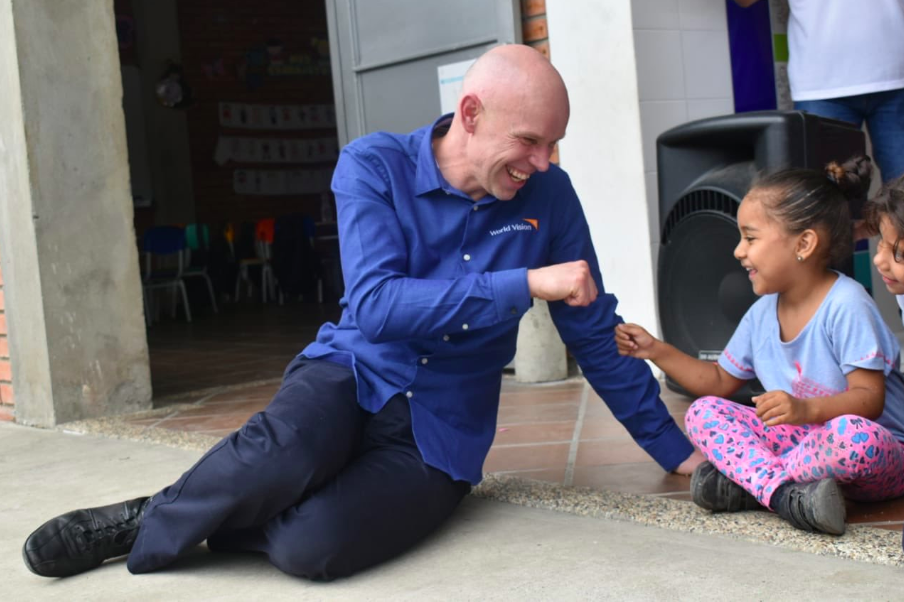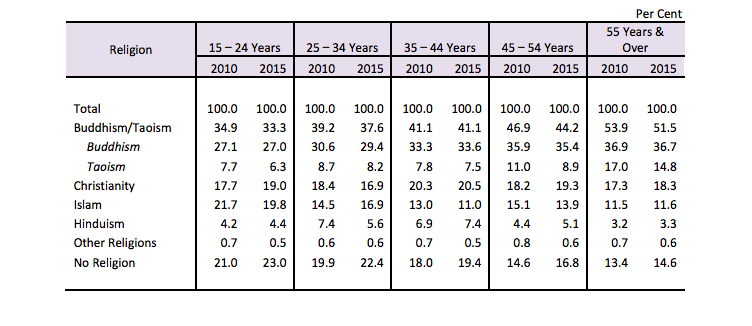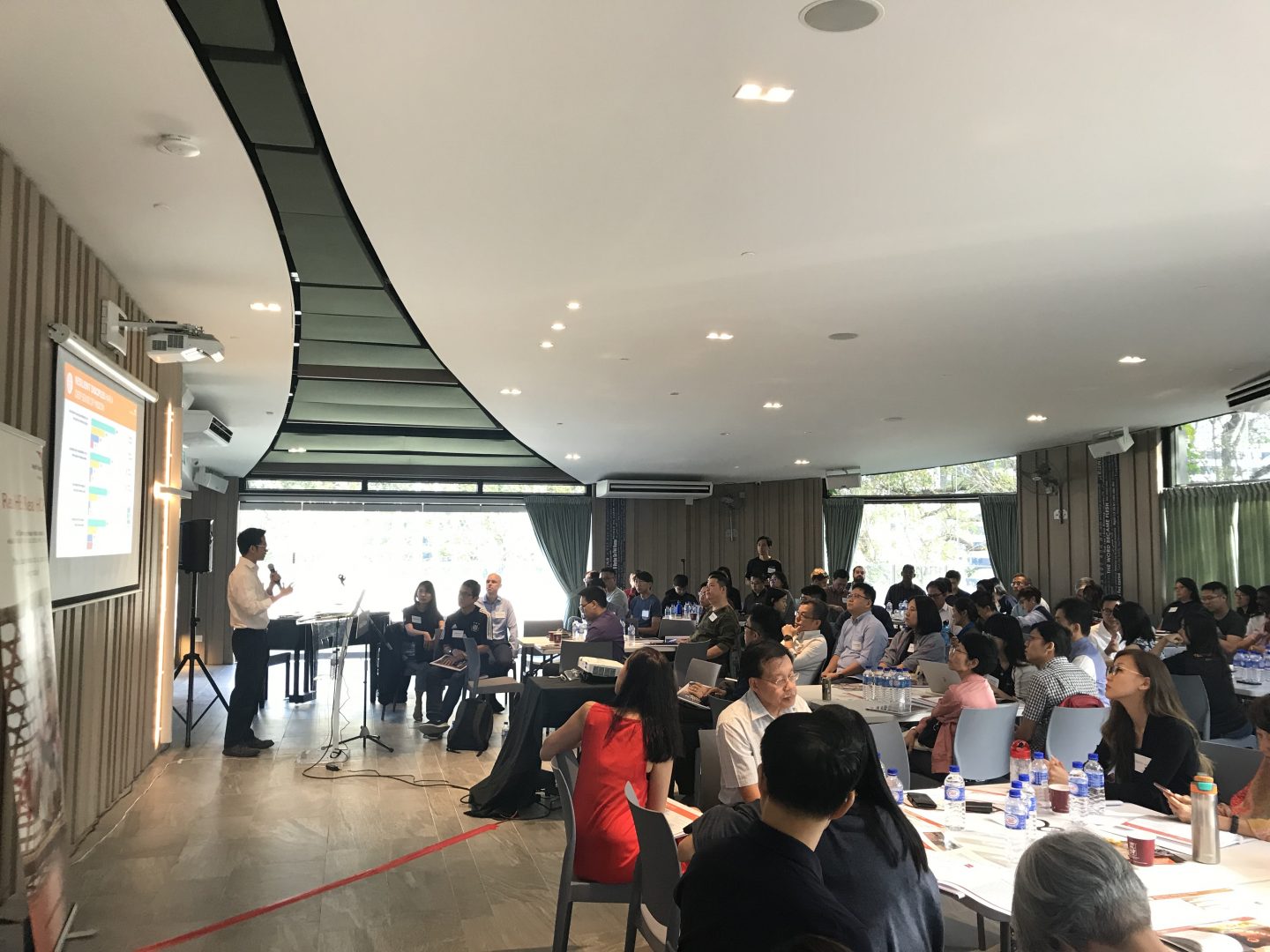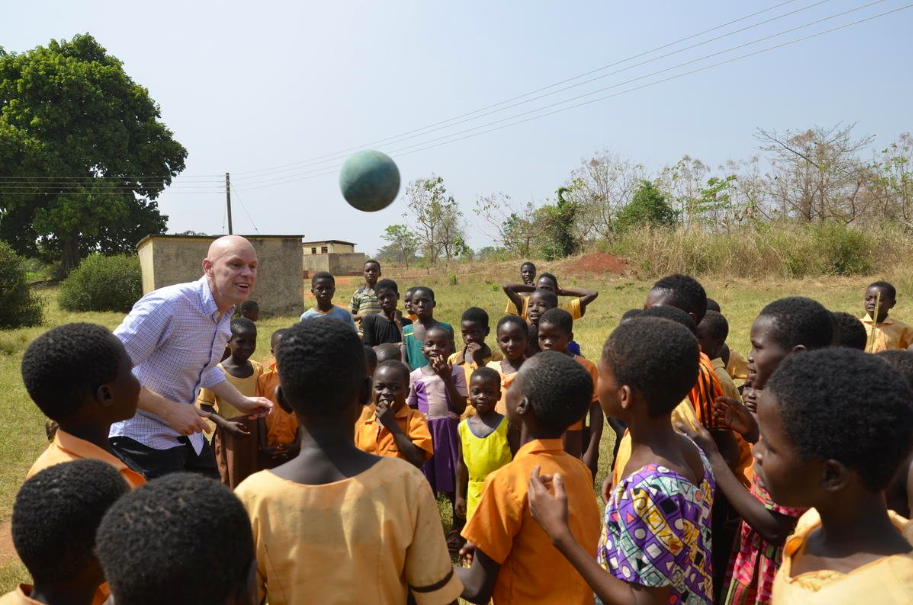“Listen better”: World Vision International’s Andrew Morley on reaching millennials
by Rachel Phua // May 18, 2019, 6:27 pm

Andrew Morley became the president and chief executive of World Vision International in February 2019. He is a former executive at Google and Clear Channel. Photo from Andrew Morley's Twitter page.
As a corporate professional with more than 20 years in the marketing field, Andrew Morley knows the power millennials hold: “At the moment, every organisation is looking at millennials because they are the next big thing.
“They are the future, and they have sometimes very different attitudes towards life, towards faith, towards giving – compared to their parents.”
Now the chief executive and president of World Vision International and also a part-time curate at Holy Trinity Brompton church in London, Morley noted that companies are rushing to, yet struggling to, capture this group of influential young adults.
Meanwhile, attracting this 18- to 35-year-old demographic has become an increasingly urgent task for the Church as well.
A 2017 LifeWay Research survey published in January 2019 found that two-thirds of Americans aged between 23 and 30 dropped out of church for at least a year after turning 18, with only a third of them returning to attend regularly later on.
Secularism is becoming more attractive to the young in Singapore too. According to the 2015 General Household Survey, the number of Christians aged between 15 and 24 increased slightly from 17.7% to 19% (2010 vs 2015). At the same time, the percentage of youths with no religious affiliations increased from 21% to 23%, and the number of Christians between 25 and 34 dwindled, from 18.4% to 16.9%.

Religious affiliation based on age group, from the 2015 General Household Survey.
To help the Church draw the young back, World Vision – which is best-known for its child sponsorship programme – commissioned research organisation Barna Group to conduct a survey of about 15,000 millennials across 25 countries on what it takes to engage Christians in their age range. The results will be released in the final quarter of 2019.
Here in Singapore, World Vision Singapore held a forum earlier this year, where 55 representatives from 19 churches and 16 parachurch organisations came together to discuss how the Church can better engage the millennial generation. The qualitative findings will be presented to Barna Group to help it further analyse its data.
Some recommendations suggested by the participants include:
- “Churches should pay attention to how they represent themselves in the digital realm, since millennials tend to visit churches’ websites when making decisions about which church to attend.”
- “Church leaders who are digital immigrants (persons born or brought up before the widespread use of digital technology) need to be cognizant about the pervasive influence that the digital sphere has on the mindsets of digital natives (persons born or brought up during the age of digital technology) in the millennial generation, and how this can present added difficulties for millennials seeking to be bold for Christ, even as they remain connected to the frequently unforgiving realm of public opinion and scrutiny online.”
- “Telling stories is essential for engaging millennials. Testimonies of how church members have experienced God working in their lives through their involvement in holistic ministry can help millennials to see that reaching out to and serving people in need can and should be an integral part of the life of faith.”
Salt&Light sat down with Morley when he was in Singapore in February, to find out more about this demographic group.
What do you think is different about the millennial generation?
Morley: You do see that causes are important with them. Things they are passionate about, they are really passionate about. They want to change the world. And they believe they can. In fact, they grew up being told they can change the world.
The other thing is, these are people who have grown up as digital natives – the first generation to do so.

The forum held by World Vision Singapore during which church representatives gathered to talk about how the Church can better engage with the millennial generation. Photo by Rachel Phua.
I also find that they are very sceptical. They want to experience life rather than just be told what to believe. ‘Establishment’ is something you often hear millennials speak against. It’s not that they want to riot, but they’re making the point that they want to see authenticity. And they are very good at spotting things that aren’t (authentic).
So they want to see the Good News being shared not just through words, but also life and deeds.
How have these factors impacted World Vision’s work?
Morley: People from this age group particularly want to be involved. For the Christians, it could be through prayer, through financial giving or physical support.
These are people who have grown up as digital natives – the first generation to do so.
We see a rise in the number of millennials who want to take part in our programmes – across the globe. World Vision Singapore found an average annual increase of 19% over the last four years of children sponsored by millennials aged 18 to 35 years old.
Fortunately, this is a group that is very well-informed. They are huge consumers of the media, be it social media or the news, so they know what’s going on.
This is an age group where you can have a conversation about things at a pretty detailed level, which is really refreshing, because when you do the work we do, you’re not starting from zero.
Have these aspects of a millennial changed the way World Vision tailors its programmes?
Morley: One of the ways we try to make a difference in the developing world is through child sponsorship. And one of the things we hear millennials talk about when talking about child sponsorship is relationships.
They see this as an opportunity to have a relationship with someone whose life they can directly change, and it’s attractive to them.
Millennials see child sponsorship as an opportunity to have a relationship with someone whose life they can directly change.
What they are less attracted to is writing two letters a year as a form of building the relationship. Digital has to be part of that dialogue where it hasn’t been: The majority of World Vision Singapore partners who are interested in connecting to their sponsored children by writing e-letters are millennials.
Besides increasing the number of updates and messages sent to the sponsor from the beneficiary – since we can send them via e-mail – we send videos informing a particular sponsor how their money has helped their child’s community. Millennials don’t want to just hear about the child, but how his or her community is being developed as a result of sponsorship too.
These videos aren’t personal, so they’re easy for millennials to share on social media. It’s another way they take part in World Vision’s work – using these stories to advocate for justice, becoming a voice that highlights that things need to be changed. It’s also something this age group is particularly enthusiastic about doing.
We found that, on average, in Singapore, seven out of 10 people who advocate for the poor by sharing about World Vision’s work are millennials.

Morley on a visit to Krabonso, Ghana, this March. Photo from Andrew Morley’s Twitter page.
On an individual basis, what do you think the older generation can do to engage the millennials?
Morley: I say – and this is for any age group – the first thing is to ask them what they want. And the one thing that’s great about millennials is they are always happy to share their opinions.
There’s no lack of clarity in the millennials’ voice.
It’s not just for individuals. Churches and organisations need to listen better too.
I started this role at the beginning of February but I was appointed in November last year. In between, I called the top 105 leaders across the organisation, one by one. I learnt so much from these calls that it is going to help my role for years to come.
But what if someone says: “Yes, I hear you but I don’t think it’s practical.”
Morley: I would say they need to listen again. There’s no lack of clarity in the millennials’ voice. They’re very open to tell you what they think, which is a blessing, because that’s not been true for past generations.
One more thing: Listening to the communities around us is very powerful too. They tell you how you’ve changed their lives; what they need, want; what their dreams are.
That’s another way the millennials can enter the fray, in terms of building advocacy, because they can amplify the voices of those that aren’t always heard.
We are an independent, non-profit organisation that relies on the generosity of our readers, such as yourself, to continue serving the kingdom. Every dollar donated goes directly back into our editorial coverage.
Would you consider partnering with us in our kingdom work by supporting us financially, either as a one-off donation, or a recurring pledge?
Support Salt&Light


